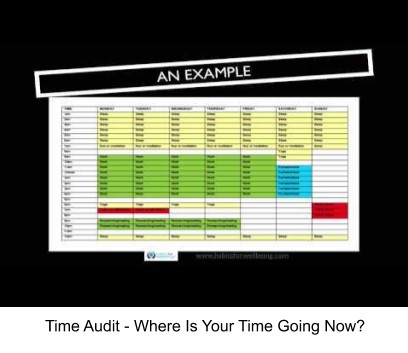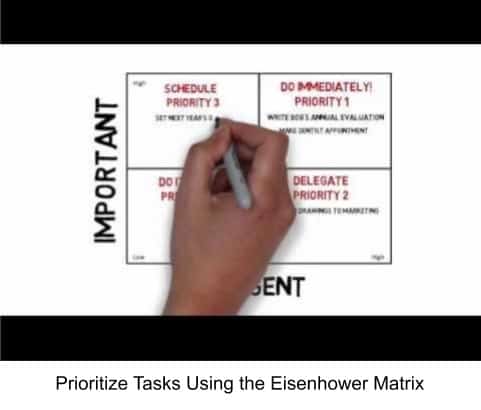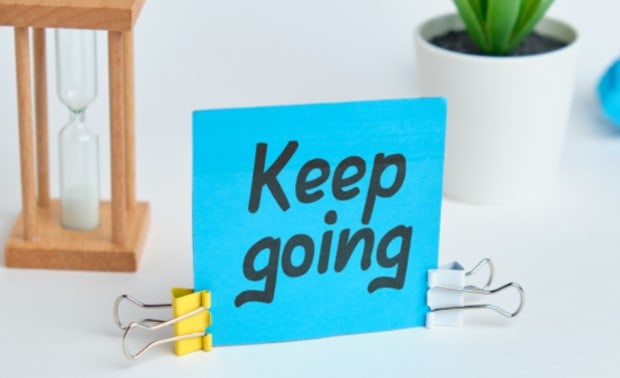30 Proven Time Management Tips & Strategies to Boost Your Productivity
Don’t have enough time on your plate?
Time is hardly the problem here. After all, there will always be 24 hours in one day. What you should be doing is managing your priorities and not taking more than you can handle in one day.
There are so many things to do and so little time, you say? We’re giving you time management tips to help you get through the day productive and less stressed.
Here’s an outline of the steps we’ll cover:
Step 1: Reflect on How You Manage Your Time
Step 2: Organize Your Schedule
Step 3: Create a Conducive Environment for Productivity
Step 4: Build Efficiency into Your Schedule
Step 5: Streamline Your Priorities, Schedule, and Environment
Step 6: Maintain Your Time Management Strategy
Once you execute these 6 steps, along with 30 time management strategies, you can upgrade your success in the right amount of time.
Let’s begin.
Step 1: Reflect on How You Manage Your Time
Tip #1: Conduct a Time Audit
The first thing to managing time efficiently and strategically is to understand how your time is being spent. Track the number of hours you spend on an activity each day and scale this over a week or a month – your choice.
The purpose of a time audit is to gauge your productivity doing certain activities at work each day. Once you’ve established a clear audit and have data on your current schedule, you can move forward by making adjustments and prioritizing key areas.
To get started, you can use an online time management app like Clockify (1) or you can learn more about how to create one yourself through this video:
Tip #2: Learn How to Deal with Stress
Stress is a recurring “frenemy” you’ll meet at work. On long days and with a ton of paperwork, stress will gnaw its teeth into your tasks and hours.
Part of learning how to manage time better is dealing with stress properly, too. Some of the things you can do include:
- Meditate
- Have a short, friendly chat with a friend
- Take a trip outdoors
- Listen to music
Learning how to manage time can help keep stress away or, at least, it will keep you from stressing out over looming deadlines and unfinished tasks. To maintain productivity, it’s best to find a stress-reducing activity that can help you as you go.
Tip #3: Get Out of Your Procrastination State
One thing that can affect time management is the little things that you do that waste your time.
Maybe you spend a lot of your time overthinking. Maybe it’s the 1-hour, 30-minute lunch break you take when you know you don’t need the extra 30 minutes.
When you feel bored in the middle of work, it’s easy to fall into procrastination. To keep this from happening, break your tasks into even smaller tasks. Get off your chair and work standing up. Try to do something different and experiment.
Tip #4: Set Deadlines
Truth be told, I wasn’t a big fan of setting deadlines. They just feel like added pressure until I realized the meaning behind them. Deadlines aren’t set to pressure you but ensure accountability, which is essential if you want to learn how to manage time better.
Ever wonder why so much work piles up at the end of your day, week, or month?
Without deadlines, those progress reports might just sit in your desk and simmer for 2 months, adding to the heap of tasks to accomplish.
Step 2: Organize Your Schedule
Tip #5: Create a To-do list
Essentially, to-do lists are reminders. If you write them on your phone and store them in your notes, you might forget about them.
Write them down instead and paste them on your desk or where you can easily see them. Make sure they’re in chronological order so you stay on track. This will keep you from trying to multitask.
Also, make sure what you write is clear and specific. This way, it’s more likely you’ll address them immediately.
Tip #6: Start the Day Early
I’ve personally experienced how starting your day early gives you great time managing benefits. It’s what most successful people practice too.
- Apple CEO Tim Cook wakes up at 3:45 a.m
- Sallie Krawcheck, CEO and co-founder of investing platform Ellevest, starts her day at 4 a.m.
- Chairman of the Vanguard Group Bill McNabb wakes up around 5 am
- Ariel Investments’ President Mellody Hobson rises at 4 a.m.
Oprah Winfrey and Michelle Obama are known to wake up at the crack of dawn too.
They wake up earlier than 6 am so they can squeeze in more tasks in one day like exercising or planning their day before they hit their desk. Do the same and you’ll have more time to plan your day, and you’ll also feel more at ease and level-headed.
If you’re having a hard time waking up early, perhaps this video can change that:
Tip #7: Make Planning One of Your Mantras
Planning is the bread and butter of time management. It’s one of the most effective and powerful time management strategies that successful people implement daily.
You can’t plan for everything; but when it comes to aspects you can control, planning can help you organize your day and routines appropriately.
Planning your daily routines alone can give you a clearer overview of your day and streamline your process and workflow, giving you a boost to get things done.
Tip #8: Prioritize Urgent Tasks First
The higher the importance and urgency, the greater their impact on your business.
Early in the day, your energy and productivity levels are much higher compared to later on in the afternoon. With your brain still fresh and able to process complex information better in the day, use this to your advantage.
Identify the tasks that give you the best return and require your immediate attention and work on them first.
Do you happen to be one of those people who are more energetic in the afternoon? Apply the same principle to get more important work done.
Use the Eisenhower matrix to help you sort between tasks. This video will help you get started:
Step 3: Create a Conducive Environment
Tip #9: Reduce or Minimize Distractions
This is a time management strategy that is essential to creating the right conditions for better outcomes. Without good prioritization, your tasks would haphazardly bounce all over the place. Also, solutions are ineffective without direction.
Separate your personal email from your work email. Steer clear from activities that bring more harm to your efficiency. If it doesn’t add more value to your time and work, set them aside. Better yet, treat them as small rewards to give to yourself after a long day.
Tip #10: Find the Right Pace for You
Time management methodology isn’t limited to just strategies and tips. You should also find the right pace that is aligned with what works best for you.
Don’t fall into the trap of competing with everyone else. Stick to your strengths and work at a steady pace to prevent exhaustion. Rather than try to be like someone else, your best performance is most often when you set your own goals and expectations for yourself.
Trying to match someone else’s speed and performance will only make you feel burned out or like you’re always behind.
Tip #11: Shift Your Perspective
Doing so will help elevate your mood, allow you to focus on the positives, and discover new creative solutions. So, if you find yourself stuck, do any of the following:
- Say “I Have To” rather than “I Get To” so you’ll be motivated to carry out your tasks, whether they’re necessary or not.
- Use the phrase “What I Like About It Is …” so you’ll see the positives of any situation.
- Change even just a little bit to see a different result. Take a different route or try a new restaurant for lunch.
- Take into account other people’s perspective so you can better deal with a situation. What if your colleague made a mistake because of the challenges they’re facing?
- Do or react in an unusual way. Rather than be angry when someone confronts you, stay calm and level-headed.
Tip #12: Do a KonMari on Your Workspace
Messy worktables, spaces, and environments have a significant impact on productivity.
De-cluttering and re-arranging are surface-level time management tips that work well, but if you’re serious and ready to proceed onto advanced effective time management strategies, do a Marie Kondo (2).
Cleaner workspaces and keeping items you truly value is the art of improving your daily routine.
Here’s an example of how it’s done:
Tip #13: Include Nature in Your Workspace
Let’s face the facts. Sitting in a confined workspace with no access to natural light or windows is depressing. Humans crave interaction with the outside world.
Studies also show higher performance rates when people are exposed to working with natural light and fresh air compared to those who aren’t.
Finally, add some spice to your workspace with the help of a few little green friends. These small indoor plants (3) are perfect solutions to help your mental fatigue and how to manage time throughout the day.
Step 4: Build Efficiency into Your Schedule
Tip #14: Break Down Bigger Tasks into Smaller Ones
Larger tasks can feel overwhelming, even for seasoned entrepreneurs, managers, and CEOs. The solution is to break down bigger pieces into smaller ones that you know you can handle.
If you spend too much time on one task, this creates a domino effect on the other tasks within your day.
A great tip for time management involves scaling tasks into smaller steps rather than trying to take a big leap in one go. Use your time efficiently by setting manageable tasks and accomplish smaller goals within a timeframe.
Tip #15: Practice How to Say No
Taking on too many requests with little concern on how to budget your time leads to a pile of unfinished work.
One way to help budget time is to tell others that you will not take calls during certain times so you can put all your attention into what you’re doing. Effective time management results in learning how to manage priorities. It’s not just about taking more and doing more.
Saying no is setting clear priorities and boundaries that allow you to take care of yourself, recharge, and devote more energy to important matters.
Tip #16: Focus on Single-Tasking
A strategy for time management is allowing yourself to focus on one task at a time instead of juggling several tasks at once.
Multitasking is the opposite of productivity and it’s one of the most inefficient ways to manage time. Make every action you do count. Don’t just spray confetti everywhere, so to speak
It’s not productive if you’re doing 5 tasks at a time that result in little to no value. It’s better to focus on one task for maximum impact.
Tip #17: Stop Chasing After Perfection
Perfection is elusive. The more you run towards it, the further it slips from your grasp. So why bother? You should focus on efficiency, effectiveness, and productivity that all result in doing things well. It’s different when you say, doing things perfectly.
Rather than chase after perfection, chase after growth. Focus on improving. This is a tip on time management that you should always remember, especially when tackling a problem.
Tip #18: Allow Yourself to Suck
It’s normal to want to be good at everything, but there’s a difference between knowing what you can do and what you can’t do. How can you manage your time efficiently if you’re trying to be great at everything?
Focus on doing work that matters. Allow yourself to be bad in some things so you can be great in the things that are important to you.
You can either be a jack of all trades or an ace in a single trade. You decide.
Step 5: Streamline Your Priorities and Schedule
Tip #19: Don’t Wait for Inspiration to Strike
You won’t always be inspired or motivated to perform the tasks sitting in front of you.
Waiting for something great to happen won’t change the task at hand, and it’s also a waste of time. Some days, you have to tolerate the discomfort and strive forward even when you don’t feel like it.
It’s times like these that trusting yourself is more important than waiting for something good to show up. Strive to do the work and don’t let one bad moment or day ruin the work you are capable of.
Tip #20: Group Similar Tasks Together
Grouping similar tasks are one of the effective strategies for time management that can save you a lot of time in a day. Essentially, it’s sorting your tasks into the same group and tackling these as one.
For example, grouping all tasks that involve communication such as answering phone calls, responding to emails, and queries on your account are all related.
Setting aside a specific time in your day to handle related tasks can be the solution to time manage your work, especially if you’re a little crunched for time.
Tip #21: Schedule Time for Relaxation and Rest
It’s one of the easier time management tips to follow. Taking a vacation or a period of rest is important to help streamline your schedule.
Your brain can’t always be at its best 7 days a week, 24 hours a day. It also needs time away from all the work and stress that pile up in a week. “Turn off” your brain for a while. Give your mind and body ample time to rest. This can stimulate your creative process and gain new insights.
Tip #22: Don’t Stick to One Routine
Sticking to one routine can easily make you feel bored, especially when you feel like you’ve been doing the same thing every day for 2 to 3 years.
In times like these, your time management at work could also use a little experimenting and freshness to it. You can try switching to different locations every 2 or 3 hours. Or, sneak in some exercise in between the day.
Even re-arranging your desk in different layouts can help a lot. The purpose of this is to stimulate innovative and unconventional thinking or, as what most people say, think outside the box.
Tip #23: Practice Visualization Daily
Streamlining is all about keeping a system efficient, using simple yet effective methods.
To build a productive system that’s both efficient and effective, use visualization. It not only accelerates your progress but it also encourages and motivates you to strive for the result you envisioned.
Visualization is a mental technique that has helped many successful entrepreneurs and athletes achieve the results, dreams, and goals they set.
Just how powerful is this mental technique? This video will explain how:
Tip #24: Create Your Weekly Plan Every Sunday
If you ask yourself: “how to manage my time better?” you’re already taking essential steps to do just that and to boost your productivity. If you ask yourself this question before the start of your week, you’ve already set the power of planning into motion.
To help you visualize your week and streamline the process, create a weekly plan every Sunday. Using a free online calendar planner like Toggl (3) makes it even easier, simpler, and more engaging, thanks to its color-coding filters.
Tip #25: Make It a Habit to Be Early
You’re already aware that starting your day early is highly effective time management or time-management solution. How about adding this solution when meeting deadlines too?
The earlier you complete a project the more time in your schedule you can free up. You can then use it up to work on other tasks. As a bonus, you provide more value and satisfaction to your clients.
Tip #26: Integrate Time Slots into Your Tasks
Time slots are great elements of planning that have helped me manage my time twice as much. Procrastination can strike anytime, so it’s good to have a strategy that keeps you in a constant flow. Also, time slots add accountability to your work to prevent a project or task from dragging out too long and from piling up.
Step 6: Maintain Your Time Management Strategy
Tip #27: Include Exercise in Your Daily Routine
Exercise helps to cement the strategies and tips you’ve used to improve how to manage your time. With daily exercise, you can manage stress better and maintain a good rhythm, whether at work, home, or in your life.
You can do stretching or light bodyweight exercises as a starter. Squeeze in exercise either before, during, or after work, whichever works best for you. To get started, here are a few stretching exercises that will help increase your energy:
Tip #28: Take Small Breaks Throughout the Day
Just like exercise, taking small breaks can help put your mind at ease when stress occurs or when the day feels extra long or overwhelming. Spreading a set of small breaks throughout your day contributes to better time management because you’re giving your brain time to cool down and regain clarity.
During your breaks, try to go out for a walk, meditate, or even take a power nap for 10 to 20 minutes.
Tip #29: Make Good Use of Time Management Apps
Which of the following strategies is recommended as an effective way to manage your time? Using time management apps.
These powerful apps and software can help create better visuals, organization, and efficiency in your schedule. Here are a few notable options:
- Remember the Milk
- Focus Keeper
- Dropbox
- MindNode
- Evernote
- Toggl
- Rescue Time
- Focus@will
- Forest
- Slack
- Trello
Rescue Time (4) offers sophistication and a wide array of features. Forest (5) is perfect for learning how to stay focused and on track.
Focus Keeper (6) helps boost motivation and prevents burnout in your work sessions. For something with great color visuals and features that prevent boredom, Toggl (7) excels in this area.
Tip #30: Strictly Monitor Your Progress
Finally, to keep everything in place and ensure your system is constantly in effect and your process consistent, it’s vital to keep track of your progress continuously.
Constantly pay attention to your habits and the changes you’ve made to your schedule.
If you feel the need to adjust or improve on a few tasks, apply the changes, record them, and constantly monitor your progress.
Frequently Asked Questions
Final Thoughts
Don’t be a slave to time, own the time you create for yourself instead. Effective time management is not just applying the right tips and strategies into your routine or schedule.
Having the discipline to keep what you’ve applied consistently is what will cement the results and productivity success you achieve.
Use these 30 time management tips and strategies to beat procrastination and build productivity into your daily routine.
References
- https://clockify.me/time-management-app
- https://konmari.com/
- https://toggl.com/plan/free-online-calendar-planner
- https://www.rescuetime.com/
- https://www.forestapp.cc/
- https://apps.apple.com/us/app/focus-keeper-time-management/id867374917
- https://toggl.com/toggl-desktop/
- https://www.amazon.com/Productivity-Zone-Stop-Tug-Time/dp/0986307505




































